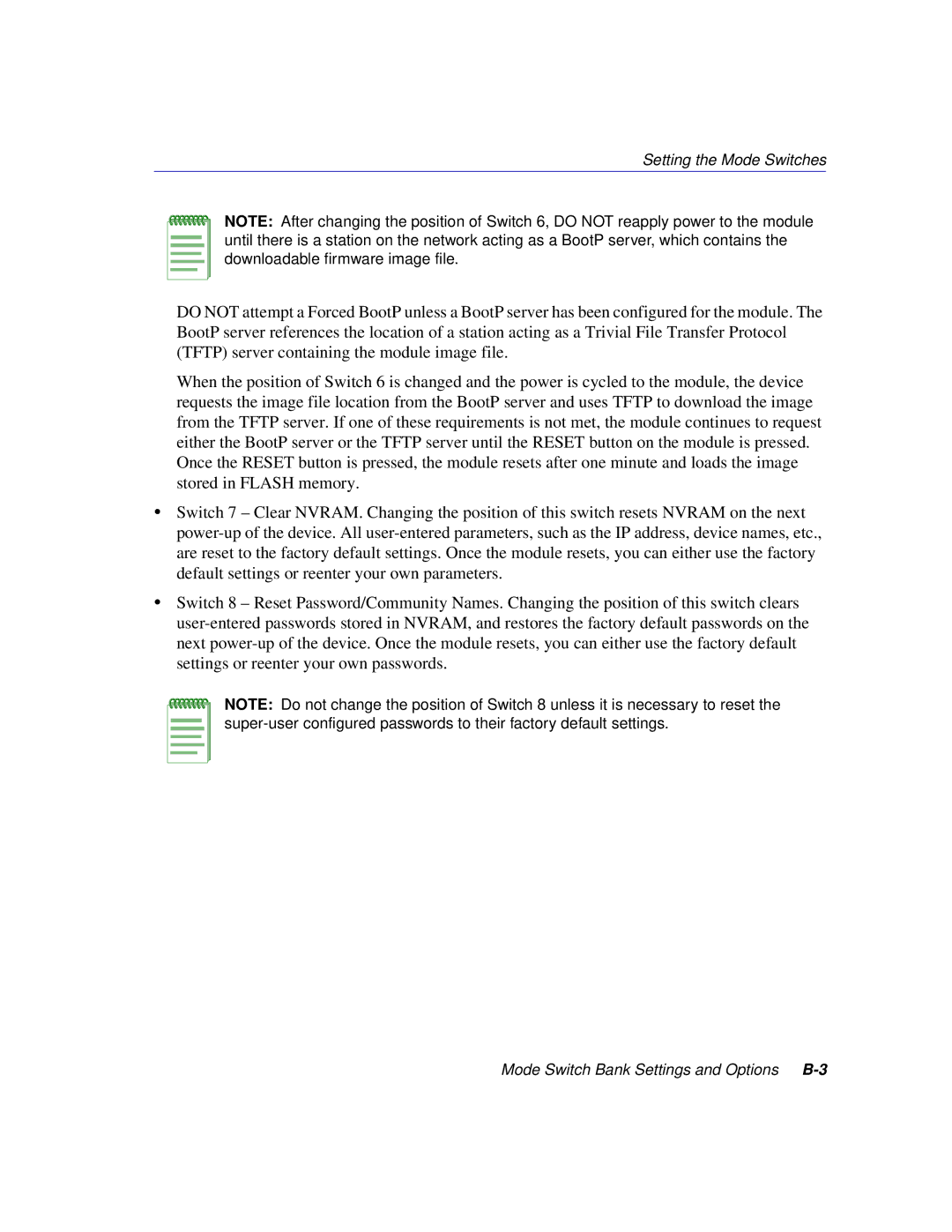
Setting the Mode Switches
NOTE: After changing the position of Switch 6, DO NOT reapply power to the module until there is a station on the network acting as a BootP server, which contains the downloadable firmware image file.
DO NOT attempt a Forced BootP unless a BootP server has been configured for the module. The BootP server references the location of a station acting as a Trivial File Transfer Protocol (TFTP) server containing the module image file.
When the position of Switch 6 is changed and the power is cycled to the module, the device requests the image file location from the BootP server and uses TFTP to download the image from the TFTP server. If one of these requirements is not met, the module continues to request either the BootP server or the TFTP server until the RESET button on the module is pressed. Once the RESET button is pressed, the module resets after one minute and loads the image stored in FLASH memory.
•Switch 7 – Clear NVRAM. Changing the position of this switch resets NVRAM on the next
•Switch 8 – Reset Password/Community Names. Changing the position of this switch clears
NOTE: Do not change the position of Switch 8 unless it is necessary to reset the
